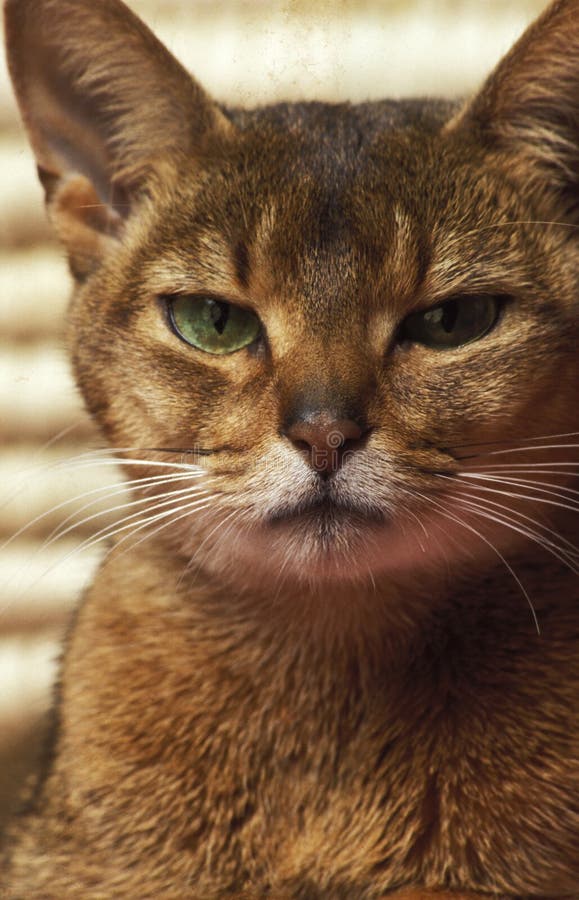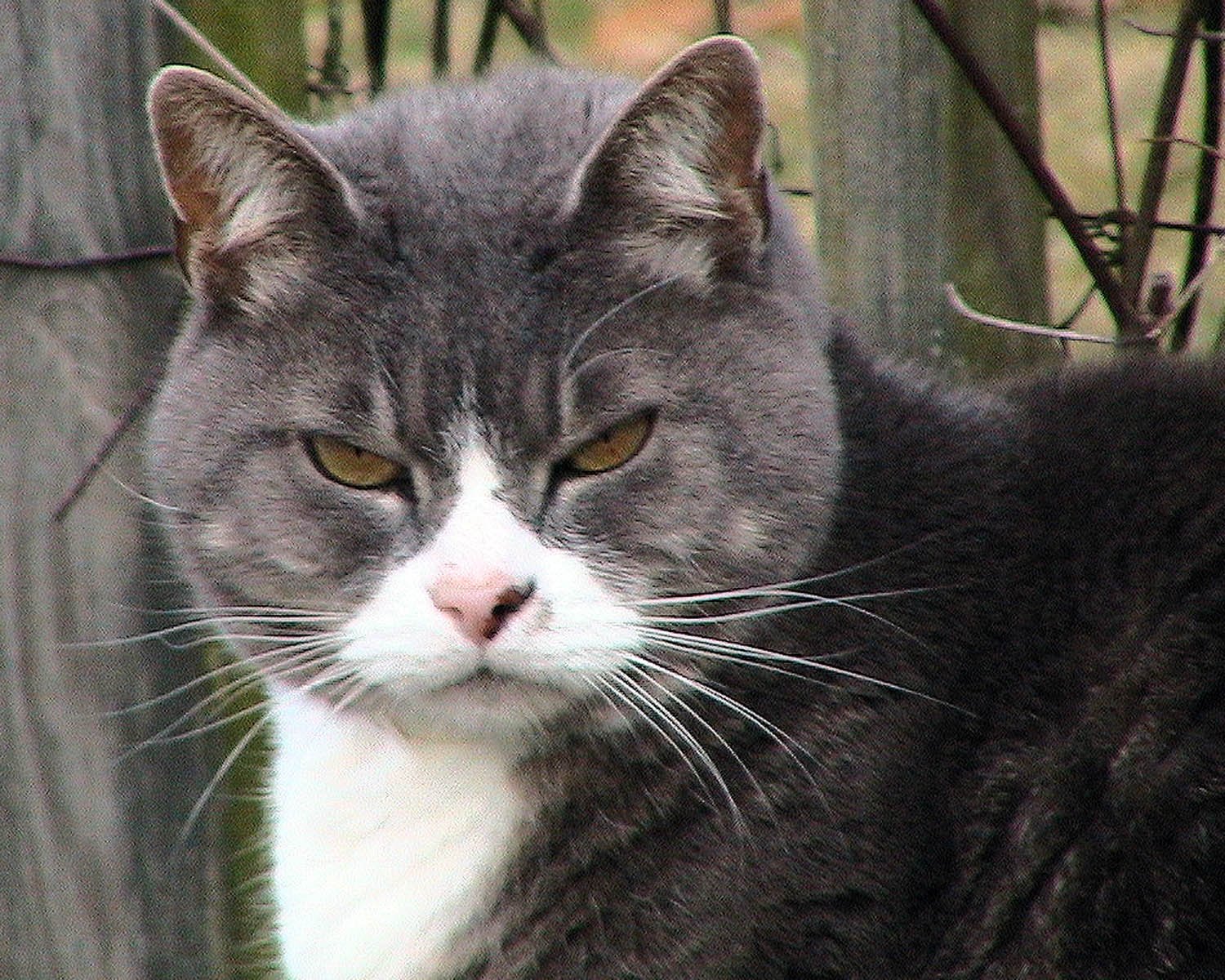Understanding The Mean Cat: Behavior, Myths, And Care Tips
When it comes to feline friends, the term "mean cat" often sparks curiosity and concern among cat owners and enthusiasts alike. Cats are known for their unique personalities, and while many are affectionate and playful, some exhibit behaviors that can be perceived as mean or aggressive. Understanding the reasons behind these behaviors is essential for providing the best care for your cat and ensuring a harmonious living environment.
In this article, we will delve into the various facets of what makes a cat appear mean, the myths surrounding this behavior, and how you can improve your relationship with your feline companion. Additionally, we will provide practical tips for cat owners to help manage and understand their cat's behavior better.
By the end of this comprehensive guide, you will be equipped with the knowledge to discern whether your cat's behavior is a sign of underlying issues, a reflection of their personality, or simply a misunderstanding. Let’s explore the world of mean cats!
- Gorlock The Destroyer Real Name Unveiling The Myth Behind The Legend
- Understanding Sam Sulek Cycle The Ultimate Guide For Cycling Enthusiasts
Table of Contents
- 1. Definition of a Mean Cat
- 2. Understanding Cat Behavior
- 3. Myths About Mean Cats
- 4. Improving Your Relationship With Your Cat
- 5. Health Issues That May Cause Aggression
- 6. Conclusion
1. Definition of a Mean Cat
A "mean cat" is often characterized by aggressive or unfriendly behavior towards humans or other animals. This can include hissing, swatting, biting, or even simply avoiding interaction. However, labeling a cat as mean can be misleading, as these behaviors are often rooted in fear, stress, or a lack of socialization.
2. Understanding Cat Behavior
To fully understand what makes a cat appear mean, it is crucial to explore the underlying factors that contribute to their behavior. Cats communicate through body language and vocalizations, and interpreting these signals can provide insight into their mood and intentions.
2.1 Aggression in Cats
Aggression is one of the primary reasons a cat may be perceived as mean. This aggression can stem from various causes, including:
- Anthony Bowens A Rising Star In Professional Wrestling
- Exploring The Journey Of Jasmine From 90 Day Fianc Love Challenges And Growth
- Territoriality: Cats are naturally territorial animals. They may display aggressive behavior when they feel their space is being invaded.
- Play Aggression: Young cats and kittens often engage in play fighting, which can sometimes lead to actual aggression if not properly managed.
- Redirected Aggression: This occurs when a cat is agitated by something they cannot reach, such as another animal outside, and then redirects that aggression towards a nearby target.
2.2 Fear-Based Behaviors
Fear can also lead to aggressive behavior in cats. Common fear triggers include:
- Strange Noises: Loud sounds such as fireworks or thunderstorms can cause cats to react defensively.
- New Environments: Moving to a new home or introducing new pets can make a cat feel insecure.
- Previous Trauma: Cats that have experienced abuse or neglect may respond with aggression as a defense mechanism.
3. Myths About Mean Cats
There are several myths surrounding the concept of mean cats that can perpetuate misunderstandings. Some common myths include:
- All Cats Are Mean: Not all cats exhibit mean behavior; each cat has a unique personality shaped by their experiences.
- Mean Cats Can’t Be Tamed: With patience and understanding, many cats can learn to trust their owners and exhibit more affectionate behavior.
- Mean Cats Are Always Aggressive: Many cats that appear mean may simply be fearful or anxious rather than aggressive.
4. Improving Your Relationship With Your Cat
Building a strong bond with your cat requires understanding their behavior and providing a supportive environment. Here are some strategies to improve your relationship:
4.1 Creating a Positive Environment
Creating a safe and enriching environment is essential for your cat's well-being. Consider the following:
- Provide multiple hiding spots and vertical spaces for your cat to explore.
- Ensure they have access to toys and scratching posts to satisfy their natural instincts.
- Minimize stressors such as loud noises and sudden changes in their environment.
4.2 Training Tips for Cats
Training your cat can help manage undesirable behaviors. Here are some tips:
- Use positive reinforcement techniques, such as treats and praise, to encourage good behavior.
- Establish a consistent routine to help your cat feel secure.
- Avoid physical punishment, as it can lead to more aggressive responses.
5. Health Issues That May Cause Aggression
Sometimes, a cat's mean behavior can be linked to health problems. It's essential to consult a veterinarian if your cat exhibits sudden or extreme aggression. Some health issues to consider include:
- Chronic Pain: Conditions like arthritis can cause discomfort, leading to irritability.
- Hormonal Imbalances: Unspayed or unneutered cats may exhibit aggressive behavior due to hormonal influences.
- Neurological Disorders: Some neurological issues can alter a cat's behavior and increase aggression.
6. Conclusion
In conclusion, understanding the complexities behind a mean cat's behavior is crucial for fostering a positive relationship between you and your feline friend. By recognizing the signs of aggression, debunking myths, and implementing effective strategies, you can help your cat feel more secure and loved. Remember, patience and kindness are key to transforming your mean cat into a loving companion.
We encourage you to share your experiences with your cat in the comments below, or share this article with fellow cat lovers who may benefit from this information. For more insightful articles on cat care and behavior, be sure to explore our website further!
Thank you for reading, and we look forward to seeing you again soon!



Detail Author:
- Name : Brant Heller
- Username : mateo.pollich
- Email : sigurd75@hotmail.com
- Birthdate : 2001-04-17
- Address : 3444 Dejon Camp Beahanmouth, TN 07035-1841
- Phone : +1-904-835-0556
- Company : Leuschke, Johnson and Bartell
- Job : Construction Equipment Operator
- Bio : Accusamus autem maiores sed error reprehenderit. Libero rerum illo aspernatur. Maiores aut et quas omnis quae. Saepe possimus odit rerum ea.
Socials
twitter:
- url : https://twitter.com/graham2005
- username : graham2005
- bio : Est amet repellendus voluptate accusamus quod. Voluptatem voluptatem illo dolorum enim. Nam voluptas quae aut autem placeat asperiores eum sit.
- followers : 2235
- following : 2944
linkedin:
- url : https://linkedin.com/in/benny_graham
- username : benny_graham
- bio : Qui dicta quae id est rerum repudiandae ut.
- followers : 4960
- following : 333
instagram:
- url : https://instagram.com/graham2006
- username : graham2006
- bio : Id voluptates eos aut modi. Ut at molestias nihil hic. Rerum explicabo vel nihil quis recusandae.
- followers : 1615
- following : 2203